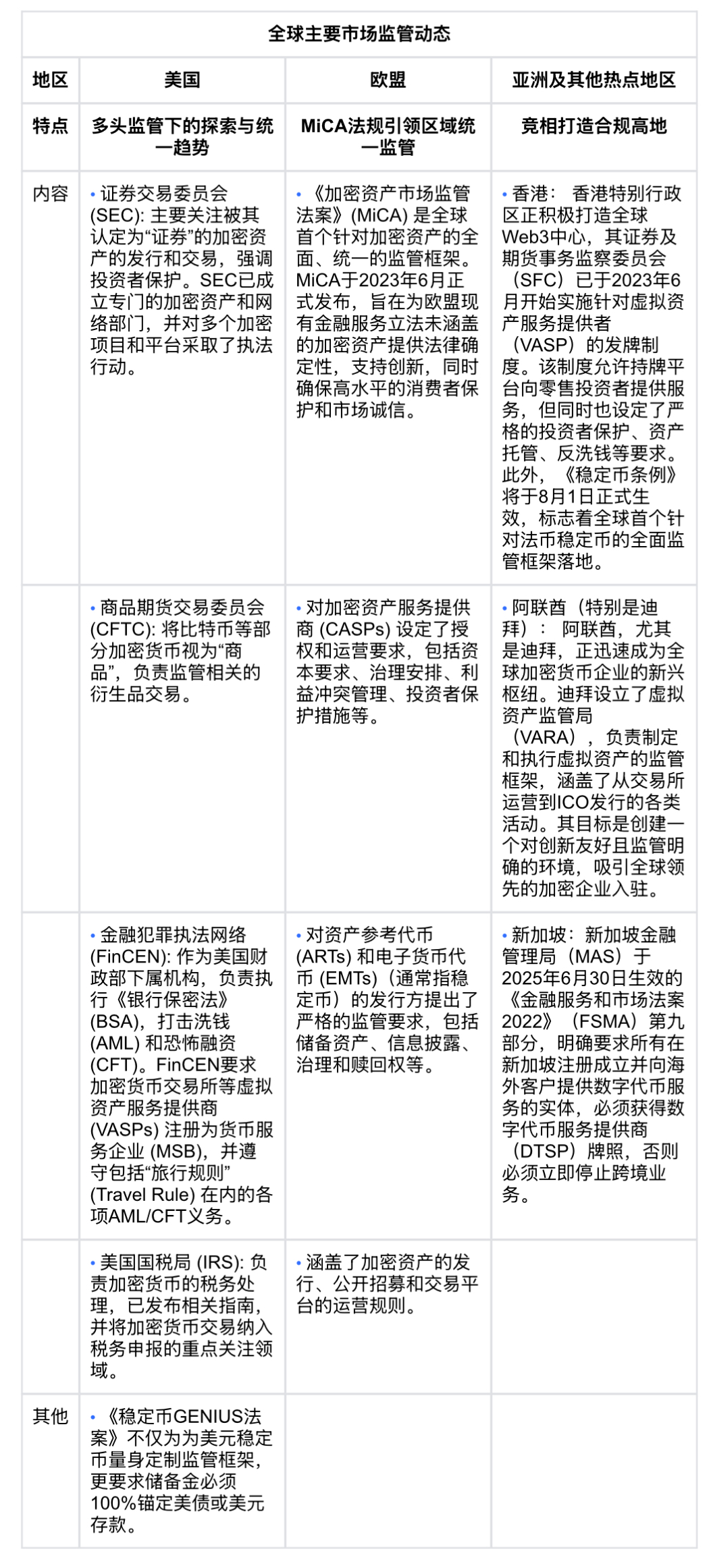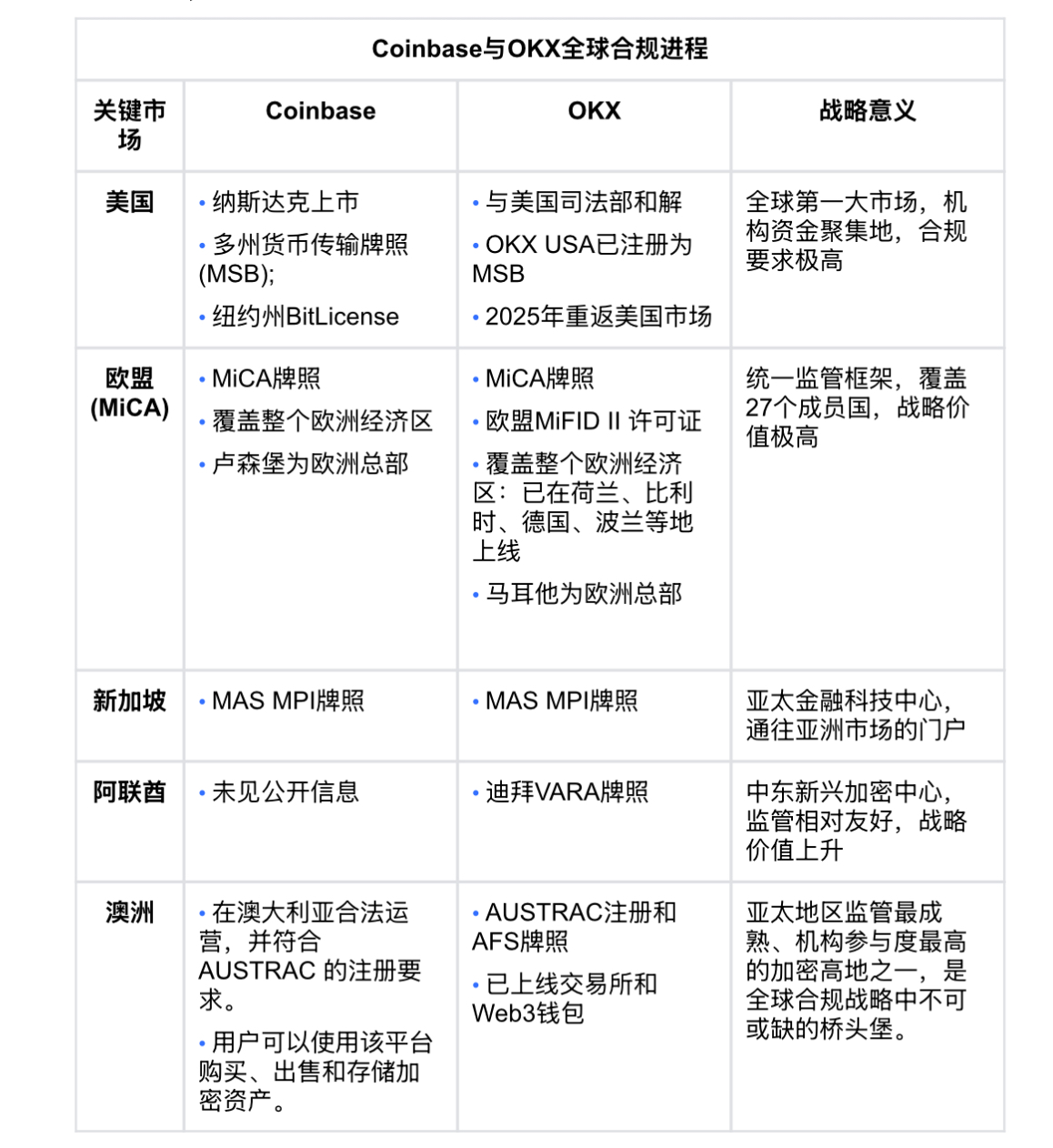On June 30, Singapore’s regulatory deadline arrived, and crypto exchanges ushered in a critical “watershed”: licensed exchanges such as Coinbase, OKX, and Hashkey took advantage of the situation, while unlicensed exchanges began to retreat!
Part 9 of the Financial Services and Markets Act 2022 (FSMA), which came into effect on June 30, 2025, of the Monetary Authority of Singapore (MAS), explicitly requires all entities incorporated in Singapore and providing digital token services to overseas customers to obtain a Digital Token Service Provider (DTSP) license, otherwise they must immediately cease cross-border business.
The “Twilight Hour” of Unlicensed Exchanges
Singapore, once regarded as a "safe haven" for global Web3 projects and cryptocurrency exchanges, is now leading the new trend of crypto asset regulation in Asia and even the world with its consistent prudence and decisiveness. The new regulations of the Monetary Authority of Singapore (MAS) for digital token service providers (DTSP) are undoubtedly the loudest alarm bell in this change. The new regulations were proposed in 2022 and will be officially implemented on June 30, 2025 after three years of preparation.
The core provisions of the new regulations are extremely "lethal": mandatory licensing, no transition period, overseas business is also regulated, and violators will face severe penalties, including huge fines and potential imprisonment.
MAS's move was interpreted as "zero tolerance" for unlicensed exchanges, aimed at maintaining Singapore's reputation as a responsible global financial center and preventing financial crime risks such as money laundering. The release of the new regulations has caused quite a stir in the industry, and many projects and exchanges operating in Singapore but not yet licensed are facing a difficult choice: either speed up compliance applications or be forced to "wander around the world" and find a new place to settle. Currently, in addition to exchanges such as Coinbase SG, OKX SG, and Hashkey that have obtained MAS's Large Payment Institution License (MPI), some unlicensed cryptocurrency exchanges are considering withdrawing from Singapore, which may even cause hundreds of employees to move to more relaxed regulatory areas such as Dubai, Kuala Lumpur or Hong Kong.
In the early development stage of the cryptocurrency industry, some exchanges took advantage of the regulatory vacuum or gray area to rise rapidly and adopted an unlicensed or lightly regulated operation model. Although this model may bring about rapid business expansion and lower operating costs in the early stage, with the awakening of global regulatory awareness and the gradual establishment of a regulatory framework, its inherent fragility and unsustainability are increasingly exposed.
The lack of effective external supervision and internal audit is the biggest weakness of unlicensed exchanges. The funds deposited by users on these platforms are extremely vulnerable to threats such as platform misappropriation, mismanagement, internal fraud or hacker attacks. Once such an incident occurs, due to the unclear main responsibility of the platform and the lack of supervision, users often have nowhere to turn to and their losses are difficult to recover. In the history of cryptocurrency development, such incidents are not uncommon: in 2022, FTX abused user funds, which eventually led to billions of dollars in losses; in 2025, Bybit was hacked and about $1.5 billion worth of ETH and stETH were stolen. These cases point to one fact: on unlicensed platforms that lack supervision and transparency, the security of users' assets is like a "Sword of Damocles" hanging over their heads, which may fall at any time.
At the same time, unlicensed exchanges are more likely to breed insider trading, false trading volume, price manipulation and other improper behaviors, and due to the failure to strictly implement or completely lack of KYC and AML measures, they are very likely to become channels for illegal capital flow and are used for illegal activities such as money laundering, terrorist financing, and evasion of sanctions. This not only violates the laws of various countries, but also seriously challenges the global financial order. In recent years, the U.S. Financial Crimes Enforcement Network (FinCEN) has been committed to strengthening anti-money laundering supervision of cryptocurrency exchanges, wallets and mixing services, and expanding the scope of application of the Bank Secrecy Act to the field of virtual currencies.
According to incomplete statistics, a considerable number of cryptocurrency exchanges go bankrupt every year due to poor management, security loopholes, regulatory pressure or direct "running away". Typical examples include the collapse of MT.Gox in 2014, the collapse of FCoin in 2020, and the collapse of FTX in 2022, all of which have caused huge losses to users. This "big retreat" under Singapore's new regulations may reshape the crypto industry landscape in Asia and even the world and reduce the risk of appeal.
Global regulatory trend: “license required before employment”
Singapore's regulatory actions are not isolated cases, but a microcosm of the global cryptocurrency industry's transition from early "wild growth" to compliant development. Major economies and financial centers around the world are actively exploring and building regulatory frameworks that adapt to the crypto asset ecosystem, striving to effectively prevent risks, protect user interests, and maintain financial stability while encouraging financial innovation.

Given the cross-border nature of crypto assets, it is difficult for a single country or region to fully cover all risks through regulatory efforts. International cooperation and unified standard setting are particularly important. Several international organizations are actively promoting this work, striving to bridge the regulatory gap and enhance the overall robustness of the global crypto asset ecosystem.
• Financial Action Task Force (FATF): As the global standard setter for anti-money laundering and counter-terrorist financing (AML/CFT), FATF plays a central role in the regulation of crypto assets. FATF has issued guidance on virtual assets (VAs) and virtual asset service providers (VASPs).
• Financial Stability Board (FSB): The FSB is concerned about the potential impact of crypto assets on global financial stability, especially in areas such as stablecoins and DeFi. The agency has issued high-level recommendations to promote comprehensive and consistent regulation, supervision and monitoring of crypto asset activities, markets and VASPs to address possible systemic risks.
• International Organization of Securities Commissions (IOSCO): IOSCO is dedicated to developing international standards for the regulation of crypto-asset markets, with a focus on investor protection and market integrity. The organization has issued policy recommendations for crypto-asset markets and called on member countries to strengthen regulatory cooperation to address cross-border regulatory challenges.
The efforts of these international organizations are gradually forming a multi-level global crypto asset governance framework, which will encourage regulators in various countries to formulate and enforce their own laws and regulations based on common principles, thereby reducing the space for regulatory arbitrage and improving the overall compliance level of the global crypto market.
The cryptocurrency industry is standing at a historic crossroads. The era of grassroots heroes and regulatory vacuum is gradually fading away, replaced by a new era that increasingly emphasizes rules, order and responsibility: compliance has become the irreversible fate of cryptocurrency exchanges, and the unlicensed operation model is irreversibly heading towards an end. As the market matures, users are more inclined to choose regulated, safe and licensed platforms, and concentrate on leading licensed institutions.
The “strategic division” of the top exchanges
As leaders in the industry, Coinbase and OKX’s global compliance processes demonstrate two completely different strategic paths and evolutionary characteristics.
As a model of "native compliance", Coinbase was born in the United States, where the regulatory environment is relatively mature. Since its inception, it has integrated compliance into its corporate genes and regarded it as a core competitiveness. Coinbase was the first to obtain licenses in many states in the United States, including a virtual currency business license (BitLicense) issued by the New York State Department of Financial Services (NYDFS), which has extremely strict regulatory requirements. Since then, Coinbase's globalization strategy has shown the characteristics of taking the US market as the base point and gradually radiating outward, and has strived to obtain clear permission from local regulators in key markets such as the European Union and Asia-Pacific.
Despite facing ongoing scrutiny and even litigation from the U.S. Securities and Exchange Commission (SEC) regarding whether some crypto assets constitute “securities,” Coinbase has actively promoted legislative clarity and supported legislative attempts such as the Stablecoin GENIUS Act that aim to provide clear rules for the industry. It is worth noting that Coinbase was selected by the S&P 500 Index Committee for inclusion in the index due to its “high standards of profitability, regulatory compliance, and governance,” which further confirms that its compliance and governance levels in the mainstream financial market are recognized.
In contrast, OKX represents the benchmark of "adaptability". In its early development, OKX was more global, with operations in multiple regions with different regulatory environments or even regulatory vacuums, which provided opportunities for its rapid expansion, but also planted the seeds of compliance risks. In February 2025, OKX Seychelles subsidiary reached a settlement with the U.S. Department of Justice, paid a fine of $84 million, and gave up about $421 million in revenue from U.S. customers during this period. In the same year, OKX announced that its centralized cryptocurrency exchange and OKX Web3 wallet were officially launched in the United States. In recent years, OKX has demonstrated strong adaptability to the global regulatory environment and accelerated the completion of the global compliance breakthrough. Through a series of measures such as obtaining key market licenses, strengthening internal risk control, and introducing professional talents, it has completed the move toward global mainstream compliance standards.
In terms of global license layout, OKX holds high-quality licenses such as the EU MiCA license and the Singapore MPI license, and has carried out MSB registration and compliance reconstruction in the United States. Its business continues to concentrate on developed markets, and it is even comparable to Coinbase. In addition, both exchanges have obtained key licenses in many important regions around the world, and the gap is gradually narrowing.

These two compliance paths provide valuable references for the industry: Coinbase's early emphasis on compliance can avoid high costs but may limit the speed of business expansion; OKX's later compliance transformation is accompanied by greater risks and costs, but it can still achieve "rebirth from the ashes". Regardless of which path is chosen, compliance has become a necessary condition for crypto exchanges to win user trust, attract institutional funds and achieve sustainable development. The two completely different compliance models are responding to the requirements of the era of stricter global regulation in their own ways.
As for those unlicensed exchanges that are still outside the regulation and have no intention of compliance, whether they are ready or not, the future industry response may be just one sentence: Bye Bye .